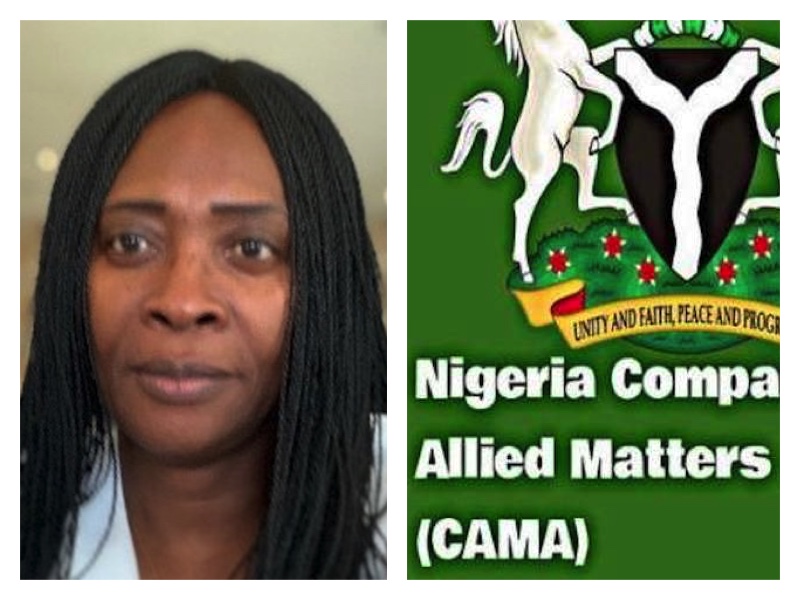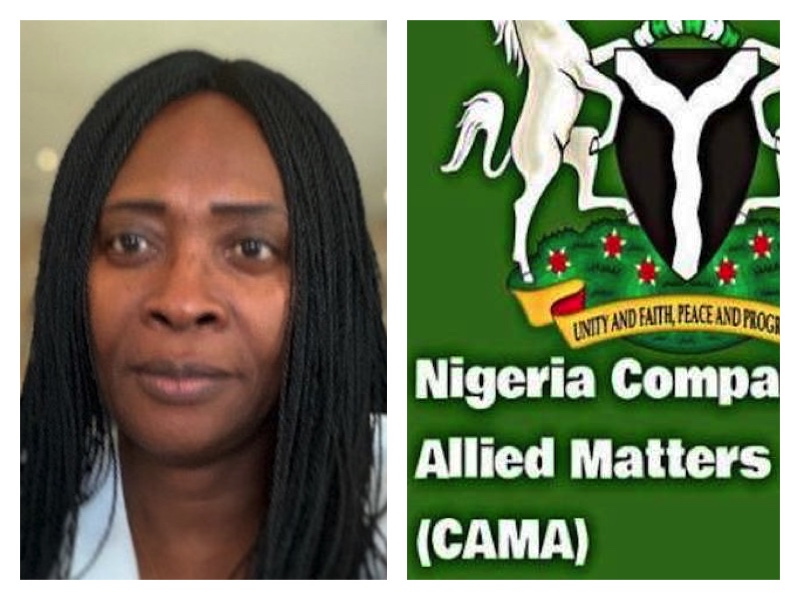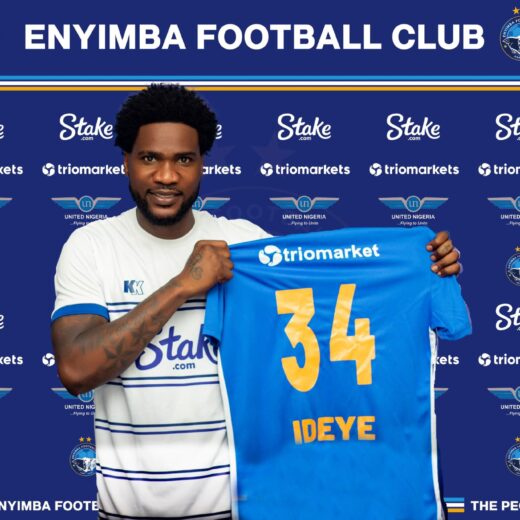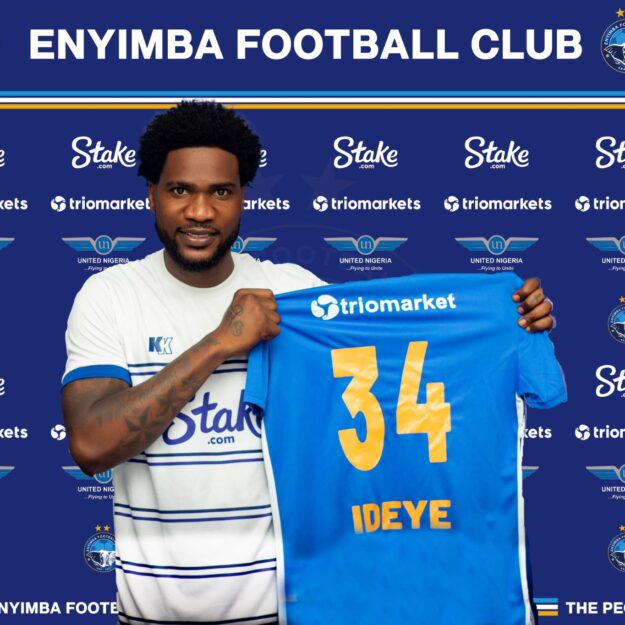<!–  Iyabo Arinola Awokoya and CAMA cover illustration –>
Iyabo Arinola Awokoya and CAMA cover illustration –>
An agenda that seeks to throw the baby away with the bathwater: A review of the CAMA from the viewpoint of its Antagonists.

Iyabo Arinola Awokoya and CAMA cover illustration
By Arinola Iyabo Awokoya
My persuasion in writing this piece on the new Companies and Allied Matters Act, 2020 (“the Act” or CAMA), is the strong belief that every citizen of Nigeria owes it as a duty of citizenship to be a part of governance. While all citizens cannot be in Government, they all can, and should all be a part of governance. Governance means the action or the manner, or the activities that are done in the administration of a nation. All laws of the country impact our lives either directly or indirectly, so also, the consequences of obedience or disobedience of our laws by citizens impact on our citizenship experience. We should all thus be interested in helping to make institutions function credibly and the only way we can do this is to arm ourselves with knowledge about how the institutions should function and the laws that set them up.
The CAMA has generated quite a storm from Incorporated Trustees. The main antagonists are Non-Governmental Organisations (NGOs) and Christian Religious organisations and for the latter only a subset are vociferous in their opposition and these are largely the Pentecostals. Lest we are subsumed in the din, let us establish perspective. The Incorporated Trustee landscape is populated by Charities high and low. Some high-end Charities are registered as Limited by Guarantee companies while others high and low register as Incorporated Trustees, but the consequences of registration of the two are similar-they are not for profit organisations. Some high-end charitable entities are the Nigerian Conservation Foundation, the MTN Foundation, Dangote Foundation, Musical Society of Nigeria, Grange Education Limited (limited by Guarantee), Corona Trust Council (Corona Schools) Ibitayo Fawehinmi Foundation, Ikoyi Club, Polo Club, Lagos Country Club, Mega Churches, Prominent NGOs-SERAP, EIE, CLO etc. At the lower end we have a potpourri of charities -smaller churches, Resident Associations, CDAs, Community clubs and village in the city community groups. From the wide array of stakeholders, only a few are antagonists of the CAMA.
The hue and cry from the CAMA antagonists is on the provisions of Section 839, which gives some discretionary powers to the Corporate Affairs Commission (CAC) to perform what can be called a ‘rescue’ of charitable organisations from maladministration of Trustees. The Act gives instances of what maladministration looks like and this includes fraudulent practices. The rescue may come in form of a temporary order suspending the Board of Trustees and the appointment of an interim manager in their stead. The same section also prescribes that the suspension shall take place pursuant to a court order. S.839 has been termed “nefarious” or an “evil” agenda by the Christian Association of Nigeria (CAN) and some of the more known NGOs such as SERAP. Some intend to march to the courts to challenge what they call an “illegal” legislation.
The ordinary man on the streets may be forgiven for thinking that the new CAMA is all about NGOs and Churches and that for the latter, that by that singular S.839, a surreptitious attempt is being made by the Government to interfere in their right to freely practice religion, or to destabilise churches by arbitrarily removing their leaders. NGOs’ angst is that the section is an interference in the right to freely associate or to stultify freedom of speech. While the NGOs and religious bodies are an important stakeholder group under the CAMA, they are not the major group and the new CAMA has also impacted on the activities of the other business entities in many positive ways that the noise of the antagonists is drowning out the voice of the protagonists.
While incorporated trustees decry the CAMA, their counterparts in the business juristic persons, have predominantly expressed a 180 degree opposite assessment. The new CAMA has been hailed as perhaps one of the nicer things that have occurred in Nigeria in this morbidly dark year of 2020. Commercial law firms, Chambers of Commerce across States of Nigeria have all praised the CAMA as being the tonic that both large and small businesses have craved for, for decades since the 1990 CAMA came into being. The new CAMA is said to be a boost to the ease of doing business in Nigeria and to have catapulted the CAC into contemporary technology-driven times where time is abridged significantly by the use of technology. The old CAMA had lagged behind technological advancements such that it impeded the ease of doing business and also impacted negatively on dispute resolutions in the court system.
While incorporated trustees decry the CAMA, their counterparts in the business juristic persons, have predominantly expressed a 180 degree opposite assessment. The new CAMA has been hailed as perhaps one of the nicer things that have occurred in Nigeria in this morbidly dark year of 2020.
For the benefit of readers that may not even understand what the CAMA or the CAC are and what their functions are, here is a brief explanation:
The CAC is set up by the CAMA as the governing institution that implements the provisions of the CAMA. The CAMA is the Act that regulates the birth of business entities such as (a) Business Names, (b) Private Limited Liability Companies (c) Public Limited Companies (PLC) (d) Companies Limited by Guarantee (e) Incorporated Trustees. These 5 entities were the ones possible to be born under the old 1990 CAMA. The new CAMA has expanded the scope of registrable companies somewhat. While the first 3 in the 1990 list are strictly for-profit companies, the last two are for non-profit purposes-specifically they are known to be charitable organisations.
The hue and cry from the CAMA antagonists is on the provisions of Section 839, which gives some discretionary powers to the Corporate Affairs Commission (CAC) to perform what can be called a ‘rescue’ of charitable organisations from maladministration of Trustees. The Act gives instances of what maladministration looks like and this includes fraudulent practices. The rescue may come in form of a temporary order suspending the Board of Trustees and the appointment of an interim manager in their stead.
Just as human beings are born, companies are also born through registration by the CAC and a certificate of Incorporation (birth) is given. The CAMA prescribes how each company/juristic person can be born, who its parents shall be (shareholders), who its nannies and teachers will be from birth to maturity (directors, who can be either external professionally qualified or the parents; how it should live throughout its business life (rules and regulations of conduct such as powers of the directors, meetings, decision making, profit sharing etc) how the juristic person is to be evaluated constantly just as a human being has to take exams and many assessments throughout life to test growth and productivity (audited accounts) and how in particular they must be accountable to Government by contributing to payment of taxes (CIT) just like human beings who pay PIT. In so far as there are differences in the make-up of juristic persons, the rules they must adhere to under the CAMA are also different. The rules for profit-making companies cannot be the same for non-profit companies but the common thread for all of them is the requirement by the CAMA that the CAC ensures that they are all held accountable.
Many people wonder why Government is so interested in the regulation of Companies and why Incorporated Trustees are part of that interest especially, as the latter pays no taxes to Government. For the profit-making companies, Government is extremely keen on them because they are a major source of revenue for the FGN because they pay taxes in form of Corporate Income Tax (CIT) and these go to the FGN. Companies also boost GDP because they create jobs and more jobs mean more Personal Income Tax (PIT) from the workers to the States. One of the factors measured by the World Bank (WB) when judging the ease of doing business for all countries is how easy it is to register a business in a country. As for Incorporated Trustees, which do not pay taxes, Government is keenly interested in their operations. The reason for this lies in the word “fiduciary”. Incorporated Trustees are said to be fiduciaries. A fiduciary is a person who is holding a position of trust-a person that can be relied upon, a person (s) who is entrusted with the wealth, welfare or patrimony of people (members, beneficiaries). Trustees must administer the organisation ONLY for the purpose that the organisation is set for and they must use the resources of the organisation ONLY for the organisation. Trustees aren’t owners of their organisations, they aren’t paid officers of the organisation, though they could be paid allowances. Trustees are just the custodians of the Trust and of name of the organisation and they provide the organisation with legal personality and succession-a name for life unless they are dissolved (death).
Now is the dilemma for Government: Incorporated Trustees do not pay tax, they cannot by law, but many are rich off the wealth of the organisation, hiding literally in plain sight, enjoying a life of affluence that they are not entitled to legally, but which because they are Trustees of the wealth and have access to it, they readily take. This is the aspect that negates the very essence for which they are given separate personality. A Trustee of an NGO or Church does NOT own the organisation. He cannot bequeath any property owned by the church to his children. The properties of the organisation belong to the organisation (members). Government must know that they are keeping to the conditions of their corporate existence and this is why they must adhere to the provisions of CAMA. They are required to prepare their Audited Accounts yearly and file same with the CAC. They must show to Government and to the public at large that they are truly worthy of trust, that they are keeping faith with their objectives and they are not fraudulently stealing money from the people who contribute to the objectives. The law expects them to have audited accounts just like other companies and file same with CAC just like for-profit companies do. Accountability is the essence.
The law simply is asking them to state as follows: “In the year 2019, our organisation received XYZ amount and we expended the sum in XYZ ways” and to give details of the expenditures and income. The Accounts must be open to the members to view such that any member should be able to ask questions on the expenses and raise dust if there is dust. Consider this scenario for example; If the General Overseer of a Church organisation decides on the purchase of a private jet, the members must be able to say how the decision was taken and if they were allowed to debate issues such as the opportunity cost of such a purchase vis a vis the building of a school? Whether majority opted for the jet? A Trustee is expected to take the decision that is in the best interest of the members and not that which is in his own personal or private interest. These are the issues why Trusts are regulated. They are regulated so that they can be trusted by all and sundry. NGOs receive money from abroad for charitable purposes, so they are also accountable to those bodies. The only trustworthy accountability tool is the record which is sent to the CAC which is the body legally allowed to keep such records.
Enough said about the viewpoints of the antagonists, let us examine the protagonists’ viewpoint of the CAMA-the for-profit business entities that have hailed the new CAMA as “Nigeria’s most significant business legislation in three decades”.
The new CAMA is big on the ease of doing business and on aligning technology to enhance business efficiency, allowing them to take quick actions and using the tool of technology to facilitate dispute resolutions in the formal court system among others. The efficiency factors of the Act are expected to promote investments, create more jobs, and promote a friendly business climate in Nigeria.
The new CAMA provides for remote or virtual general meetings. The cost savings from this is huge especially for PLCs and it will also allow many more people to participate in the decision-making process of the companies as they can be connected from across the globe.
Prior to the new Act, all limited liability companies needed the services of lawyers to sign a Declaration of Compliance or they had to attest to such before a Commissioner for Oaths or notary public before their incorporation forms would be admitted by the CAC. This has been replaced with a requirement for only a statement of compliance by S.40 (1) of the new Act. The Statement of Companies can be signed by any of the shareholders or owners or by their agent. What this does is reduce the incorporation costs. Lawyers may feel somewhat uncomfortable and see it as an incursion into avenues of earning fees, but the greater good that is served is to get more businesses embracing formality and thus increasing the tax base of the country. In related vein, small companies and single shareholder companies no long have to appoint auditors (S.402) and the appointment of Company Secretaries is now optional for private companies but still mandatory for PLCs (S.330 (1))
It is now legal to have electronic share transfer (See S.176 (1)) and e-meetings for private companies. Also, the new CAMA provides that certified true copies (CTC) of electronically filed documents are admissible in evidence with equal validity with the original documents. (S.861). This is truly huge for lawyers as there will be no delays tenable for not producing documents because the originals are not available. It is even possible to download the CTC of a document in the morning of a court appearance and tender same in court.
The 2020 Act has also created more business entities. There are now Limited Liability Partnerships and Limited Partnerships. This impacts on tax status of a partnership with the limited liability of members of a company. Also, an individual can now register a limited liability company and be the sole shareholder. (S.18 (2)) Prior to this, the minimum number of persons who could form a company were two.
It is no longer mandatory that a company must have and/or use a common seal. Also, small companies only need to register with a minimum share capital and not an authorised share capital. The impact of this is in incorporation cost reduction as shareholders will only pay registration and stamp duty fees on the share capital that they actually need to start the business and not the optimum shareholding. (s.27)
Filing fees payable to CAC for registration of charges have been reduced to a maximum of 0.35% (S.223 (12)). This is also a huge cost reduction. A charge is a lien on assets of a company to secure a loan. Imagine borrowing N100million and having to pay to register the charge with CAC, a percentage in digits of between 3-10% (3-10M) and then compare it to having to pay not more than N350,000.00 in the current Act.
The new CAMA is big on the ease of doing business and on aligning technology to enhance business efficiency, allowing them to take quick actions and using the tool of technology to facilitate dispute resolutions in the formal court system among others. The efficiency factors of the Act are expected to promote investments, create more jobs, and promote a friendly business climate in Nigeria. The new CAMA provides for remote or virtual general meetings. The cost savings from this is huge especially for PLCs and it will also allow many more people to participate in the decision-making process of the companies as they can be connected from across the globe.
There are so many positive changes that the new CAMA has brought to the fore which will improve businesses and help government to stimulate the economy and what have been touched on in this article is a mere minuscule. The impact of the changes will be largely felt in the growth of SMEs in the nation. The Act has reformed insolvency to wit, that there are more provisions for rescuing insolvent companies; mergers and acquisitions are made to be more equitable and transparent; there is a limit on how many directorships an individual can hold in PLCs (restricted to 5) and there is the requirement for disclosure of persons with significant control of companies in a register of beneficial owners to enhance corporate accountability and transparency. This means it will be easier to know the interests of beneficial owners in companies. So, if a man’s name is not on the company as a shareholder, but his company holds shares in that company. If he is the majority shares in the company that holds shares, his name must be listed as a significant person to the company.
My take on the CAMA is that Nigeria had over the years been paying lip service to the issue of diversification of the economy away from a reliance on oil revenues. This current administration has gone past lip service to actually taking actions in line with the agenda. One area of diversification that is being actively pursued is to increase tax to GDP ratio. The tax-to-GDP ratio has so far defied nearly all attempts to bring it up, crawling to 6.1% in 2019 from 5.7% in 2017. In comparison, the average for the 26 African countries in Revenue Statistics in Africa 2019 remained at 17.2% over the same period. The new Act aims to facilitate growth of the tax to GDP ratio through CAMA’s impactful provisions that will encourage many citizens to register companies and come into the formal sector.
By passing the new CAMA, the National Assembly has demonstrated that it is in sync with the Executive on achieving more ease of doing business in Nigeria milestones. The Act will likely impact on Nigeria’s ranking on the World Bank Ease of Doing Business for 2020. In the 2019 edition Nigeria advanced in a quantum leap and was even named as one of the 10 countries that were most improved in Ease of Doing Business.
The CAMA is good for the business landscape of Nigeria. It is good for the private sector, good for the public sector and definitely good for the Civil Society Sector. The much- maligned S.839 of the CAMA that the NGOs and other Incorporated Trustees take umbrage against is a protection that the law affords to the general public. A trustee will be removed to preserve the ‘res’. If a Church’s Board of Trustees want to avoid running afoul of S.839, they should be transparent and accountable to their congregation and to the CAC. If you must build a residential castle for the Bishop, let the members approve it. If members disapprove and you insist on going ahead, then, members can petition the CAC and the latter can temporarily suspend the Trustees and appoint an interim manager in order to preserve the res. Thereafter the matter goes to the courts for decision. Nigeria has been behind times for decades in regulating NGOs. Other nations in “saner climes” as they are mischievously called in Nigeria have similar provisions to S.839.
The CAMA is good for the business landscape of Nigeria. It is good for the private sector, good for the public sector and definitely good for the Civil Society Sector. The much- maligned S.839 of the CAMA that the NGOs and other Incorporated Trustees take umbrage against is a protection that the law affords to the general public. A trustee will be removed to preserve the ‘res’. If a Church’s Board of Trustees want to avoid running afoul of S.839, they should be transparent and accountable to their congregation and to the CAC. If you must build a residential castle for the Bishop, let the members approve it. If members disapprove and you insist on going ahead, then, members can petition the CAC and the latter can temporarily suspend the Trustees and appoint an interim manager in order to preserve the res. Thereafter the matter goes to the courts for decision. Nigeria has been behind times for decades in regulating NGOs. Other nations in “saner climes” as they are mischievously called in Nigeria have similar provisions to S.839.
The Charity Commission of the UK “has the power to appoint an Interim Manager to act in the administration of a charity. It is a quasi-judicial power and can be used by the commission only after opening a statutory inquiry under section 46 of the Charities Act 2011, if it considers that there has been misconduct or mismanagement in the administration of a charity or if it is necessary or desirable to protect the charity’s property. The commission usually appoints an Interim Manager to manage a charity to the exclusion of the existing trustees. The charity pays the Interim Manager’s fees as in the case of receiver or liquidator appointments by the court. The appointment of an Interim Manager is only ever a temporary and protective step. The commission therefore appoints an Interim Manager only after very careful consideration of alternative solutions to the problems faced by the charity in question…..Although the commission can make Interim Manager appointments with the agreement of the charity trustees, most are taken forward without their consent, because the trustees are either unwilling or unable to put matters right themselves.”
Rather than fight the new CAMA on a recondite point, such as impugning the legality of an Act of the duly constituted National Assembly, those who are wary of the powers bestowed on the CAC should rather be focused on how to make the process of the CAC to be transparent and fair. The issues that should be in the discussion should be:
Will the CAC publish regulations/directions on how it will enforce S.839?
Will the organisations that are deemed to be suffering mismanagement be given an opportunity of fair hearing before a decision is taken to appoint interim managers for them?
How will interim managers be appointed?
Who can be an interim manager?
How long will the managers have to administer the charities before they are returned to the Charity or wound up?
But there would be no need whatsoever for any charity to end up with an Interim Manager is they are accountable and keep proper records. But will they? That is the irony of the hullabaloo opposition to the CAMA: Why on earth would those who should embrace accountability naturally be angry that they are being asked to be accountable.
*Mrs. Iyabo Arinola Awokoya is a Legal Practitioner, Development Consultant and Mediator.
Related
You may be interested

Juventus Interested In Asensio
Webby - January 1, 2025According to a report from Foot Mercato, Juventus are interested in Paris Saint-Germain’s Marco Asensio as they look to bolster…

NPFL: Ideye Makes Enyimba Debut In Draw Vs Bendel Insurance
Webby - December 31, 2024Brown Ideye featured as a substitute as Enyimba were held to a 0-0 draw by Bendel Insurance in Aba on…

NPFL: Brown Ideye Delighted To Join Enyimba
Webby - December 31, 2024Former Super Eagles forward Brown Ideye has expressed his delight after linking up with Enyimba, reports Completesports.com.The two-time African champions…
















![American Pastor, David Wilson Seen Eating The Box Of Woman Who Isn’t His Wife [Video]](https://onlinenigeria.com/wp-content/uploads/2019/10/american-pastor-david-wilson-seen-eating-the-box-of-woman-who-isnt-his-wife-video-150x150.jpg)









